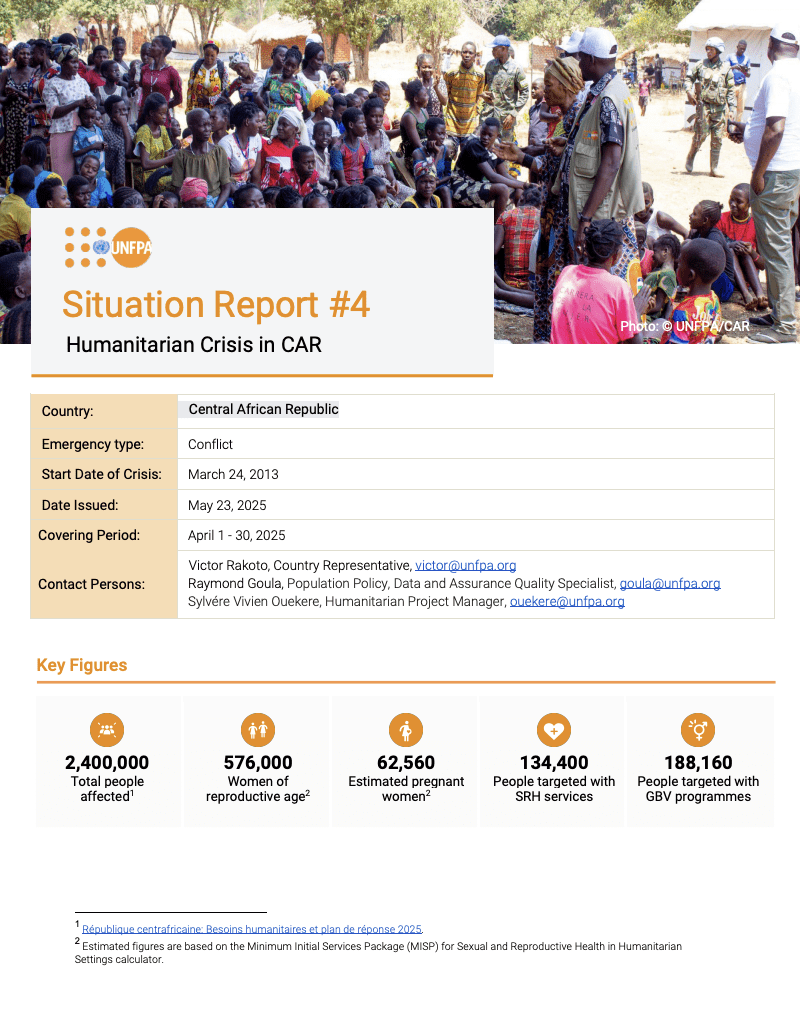
In April 2025, the Central African Republic (CAR) remained gripped by a complex humanitarian crisis driven by armed conflict, insecurity, and displacement. Over 2.4 million people — nearly 38 per cent of the population — are in need of assistance, with more than 442,000 internally displaced. The southeast, northeast, and western regions continue to experience severe instability, including sexual violence, intimate partner violence, and inadequate access to maternal health services. A recent inter-agency assessment in Bria revealed high rates of rape, child marriage, and female genital mutilation, with critical shortages in clinical services. The termination of US aid has further jeopardized access to sexual and reproductive health (SRH) services for nearly 70,000 women and girls, particularly in refugee-hosting areas like Birao.
In response, UNFPA and its partners delivered life-saving interventions across multiple locations. Gender-based violence (GBV) prevention and psychosocial support were provided to 1,675 women and girls through four operational safe spaces, while 9,071 people benefited from GBV awareness and protection activities. SRH services reached 5,556 individuals via seven health facilities, including 119 safe deliveries. UNFPA distributed 204 dignity kits to vulnerable populations, supported 19 GBV survivors with cash protection allowances, and ensured psychosocial care for 100 per cent of GBV survivors seeking help. The organisation also led capacity-building initiatives, including regional SRH coordination training and local GBVIMS sessions. Despite constrained resources, these efforts contributed to improved safety, dignity, and access to care for at-risk communities.
UNFPA requires $US16.56 million in 2025 to maintain essential GBV and SRH services in CAR. As of April, only $US1.6 million has been secured, leaving a funding gap of $US14.1 million. This shortfall threatens the continuity of critical interventions, particularly in conflict-affected and underserved areas. UNFPA continues to advocate for urgent funding to safeguard the health, safety, and rights of women and girls across the country.

